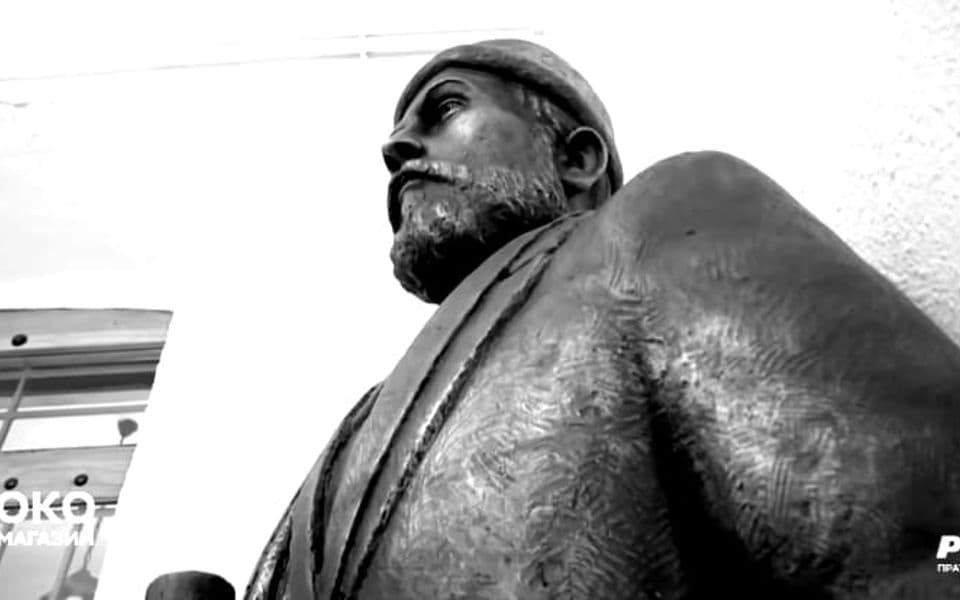Lifestyle
Revisionists Use History to Justify Future Crimes

The ongoing discourse surrounding historical revisionism is raising significant concerns about its implications for future conflicts. In a recent column for the Center for Democratic Transition (CdM), writer Andrej Nikolaidis argues that the actions of revisionists, who defend past war criminals, are paving the way for potential crimes in the future.
While many countries strive to learn from history to prevent similar atrocities, a troubling trend has emerged where certain factions seek to rewrite narratives. This phenomenon is particularly evident in Montenegro, where historical revisionism is increasingly being used as a tool to excuse the actions of individuals previously labeled as war criminals.
In his analysis, Nikolaidis notes that revisionists are not merely distorting facts for academic purposes; they are actively preparing the ground for future injustices. By portraying war criminals as victims, these individuals undermine the principles of justice and accountability that the international community has worked to establish since the end of the conflicts in the Balkans.
Implications for Justice and Peace
The ramifications of historical revisionism extend beyond academic debates. By legitimizing the actions of past perpetrators, revisionists create an environment where similar behaviors can be justified in the present and future. Nikolaidis emphasizes that such narratives carry a dangerous potential, as they may incite a new wave of violence and conflict.
The international community must remain vigilant against these trends. Historical accuracy is vital for reconciliation and healing in societies that have experienced trauma. Nikolaidis calls for a collective commitment to uphold the truth, thereby ensuring that history does not repeat itself.
In the context of modern geopolitics, the role of historical narratives cannot be underestimated. Countries grappling with their pasts must confront these revisionist tendencies. Without a clear and honest examination of history, the specter of future crimes looms large, threatening to undo the hard-won progress made in fostering peace and stability.
A Call to Action
Nikolaidis concludes with a strong appeal for individuals and institutions to actively challenge revisionist perspectives. He urges governments, educators, and civil society to engage in open dialogues about the past, promoting a comprehensive understanding of historical events.
As we approach significant dates like May 2024, which mark important anniversaries in the region’s history, the need for a truthful recounting of events becomes even more urgent. Only through confronting uncomfortable truths can societies move toward genuine reconciliation and avoid the pitfalls of historical amnesia.
The stakes are high, and the responsibility lies with each generation to ensure that the lessons of the past inform a more just and peaceful future. The fight against historical revisionism is not merely an academic endeavor; it is a fundamental struggle for justice and humanity.
-

 Entertainment3 months ago
Entertainment3 months agoAnn Ming Reflects on ITV’s ‘I Fought the Law’ Drama
-

 Entertainment4 months ago
Entertainment4 months agoKate Garraway Sells £2 Million Home Amid Financial Struggles
-

 Health3 months ago
Health3 months agoKatie Price Faces New Health Concerns After Cancer Symptoms Resurface
-

 Entertainment3 months ago
Entertainment3 months agoCoronation Street’s Carl Webster Faces Trouble with New Affairs
-

 Entertainment3 months ago
Entertainment3 months agoWhere is Tinder Swindler Simon Leviev? Latest Updates Revealed
-

 Entertainment4 months ago
Entertainment4 months agoMarkiplier Addresses AI Controversy During Livestream Response
-

 Science1 month ago
Science1 month agoBrian Cox Addresses Claims of Alien Probe in 3I/ATLAS Discovery
-

 World2 weeks ago
World2 weeks agoBailey Announces Heartbreaking Split from Rebecca After Reunion
-

 Health4 months ago
Health4 months agoCarol Vorderman Reflects on Health Scare and Family Support
-

 Entertainment4 months ago
Entertainment4 months agoKim Cattrall Posts Cryptic Message After HBO’s Sequel Cancellation
-

 Entertainment3 months ago
Entertainment3 months agoOlivia Attwood Opens Up About Fallout with Former Best Friend
-

 Entertainment2 weeks ago
Entertainment2 weeks agoCoronation Street Fans React as Todd Faces Heartbreaking Choice





















